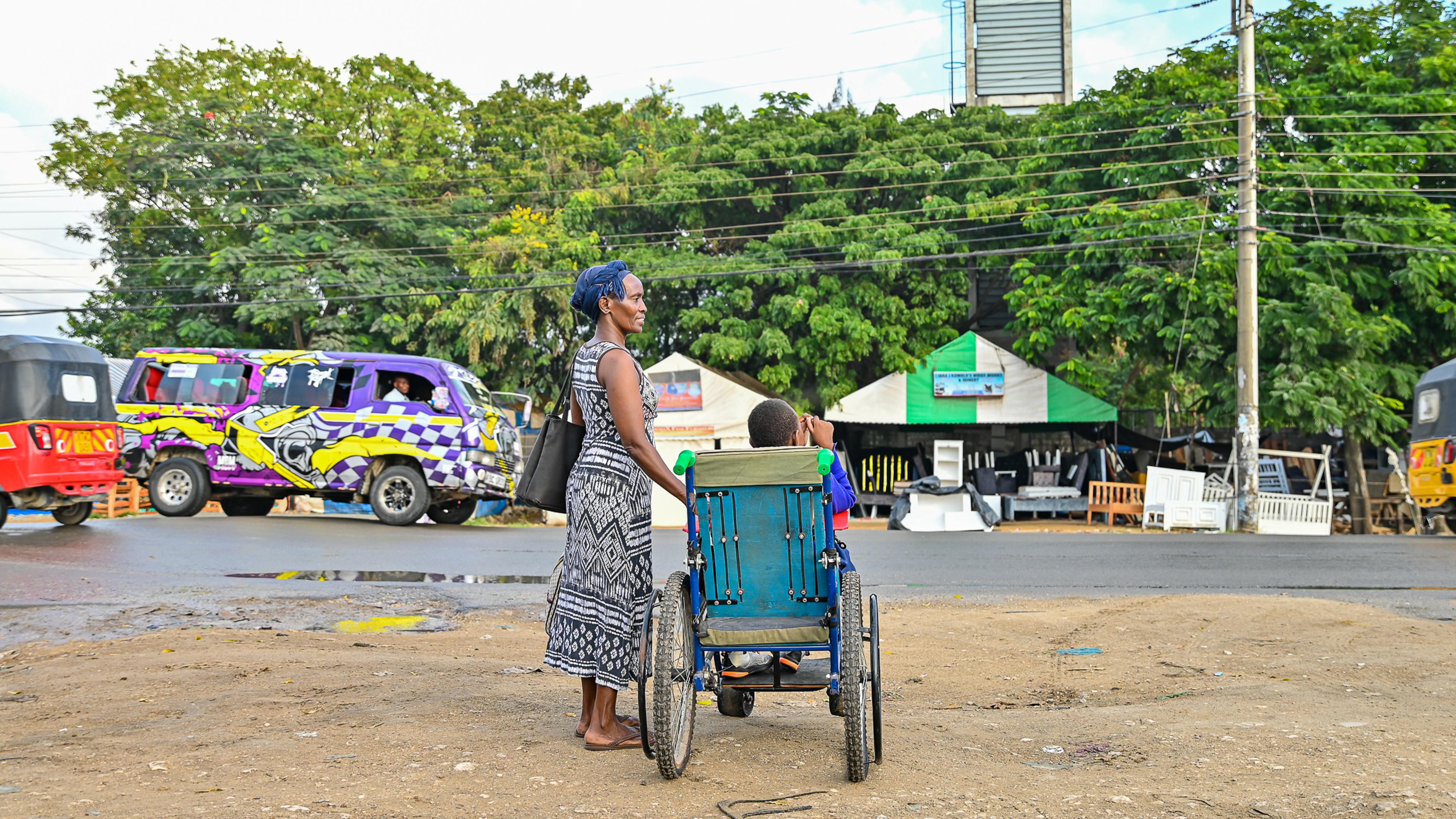Inclusive humanitarian response for children with disabilities
 © UNICEF
© UNICEFWhat is the challenge?
The UNICEF project in Kenya addresses the critical challenge of inadequate and outdated data systems for children with disabilities during humanitarian emergencies, hindering timely and targeted humanitarian responses for children with disabilities. In simple terms, imagine a scenario where vital information about vulnerable children is scattered and not readily available, making it difficult to provide essential support like healthcare and education when most needed. This initiative aims to revolutionise this process, utilising innovative approaches such as crowdsourced data and technology to ensure that children with disabilities receive tailored assistance required during humanitarian emergencies, fostering a more inclusive and effective response.
The project seeks to develop a prototype model that utilises crowdsourced data from communities to inform the development of various non-traditional financing mechanisms to generate additional resources for humanitarian response. The project will use technology to disrupt the assessment process for children with disabilities and empower families to take charge of the disability assessment. Using crowdsourced data on disability, the project will employ economies of scale to inform innovative financing mechanisms to develop tailored services (health and education) and products (assistive devices).
What is innovative about the project?
This project stands out for its innovation in three key areas. Firstly, it harnesses anonymous crowdsourced data from communities, particularly on disability, to shape unconventional financing mechanisms. This approach not only generates additional resources but also enables the development of customized health and education services, as well as assistive devices, using economies of scale. Secondly, the project introduces technology to revolutionise the assessment process for children with disabilities, placing control in the hands of families and emphasising inclusivity and user-driven evaluations. Lastly, through collaboration with private sector organisations and NGOs such as Kilimanjaro Blind Trust, the project identifies and ensures access to affordable, durable, and contextually relevant assistive technology solutions for children with disabilities. This comprehensive approach marks the project's innovative strides in addressing the unique needs of its beneficiaries.
What are the expected outcomes?
The project aims to achieve significant humanitarian impact through its innovative initiatives. In the initial stages, 1,000 children with disabilities will gain access to social health insurance, and at least half of them will have access to assistive devices. The establishment of functional self-registration and assessment for children with disabilities is a key milestone. Additionally, the project will work with technical and vocational education and training institutions that produce assistive devices in collaboration with selected county governments. If scaled, the project has a potential to reach an estimated 0.9 million people with disabilities in Kenya.
The overarching goal is to enhance the generation of comprehensive information on children with disabilities, informing inclusive programs and interventions for agile humanitarian response. The project also seeks to increase access to essential services and locally manufactured assistive products, promoting the aspect of affordability and accessibility. This includes providing accessible education materials, teacher training, and facilitating access to health services, contributing to improved health and reduced disability risks. The project is not only addressing immediate needs but also aim at creating a more inclusive society by raising awareness of the rights of children with disabilities and reducing stigma.
Throughout the innovation process, the project prioritises the involvement of children with disabilities and their families. UNICEF utilises county/district monographs, ongoing inclusive programs, and databases to analyse needs and identify participants. Engaging organisations like Kilimanjaro Blind Trust in schools and leveraging technologies like the Orbit Reader 20 will enhance the inclusion of affected individuals. Questionnaires, in-person tools, and interviews with children, families, teachers, and community leaders facilitate ongoing feedback and optimisation of the project.
The project integrates a human rights and gender-sensitive approach. It focuses on gender equality, recognising the challenges faced by women and girls in education, empowerment, and well-being. The implementation follows a child focused approach, ensuring that all children, regardless of their status, have access to education.
Who are the project partners?
The project will work with Kilimanjaro Blind Trust Africa and in particular their innovation accelerator Innovate Now. In addition, private sector partners with expertise in innovative finance for social services and disability programmes. Other partners will include national and county governments in Kenya as well as other stakeholders such as the National Council for People with Disabilities.